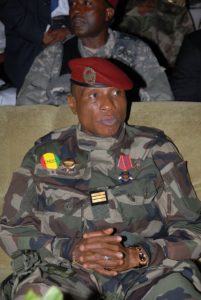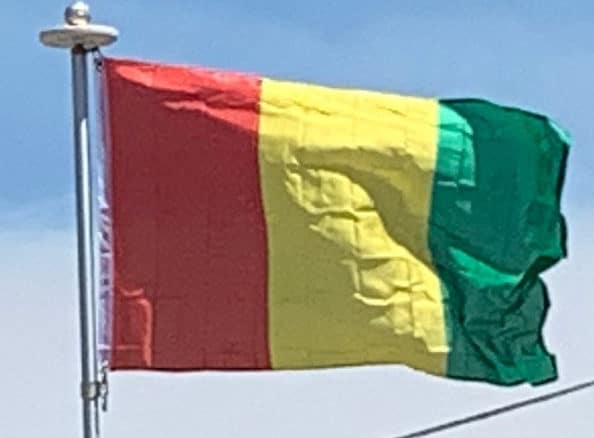In 2001, Conté organized and won a referendum to lengthen the presidential term and in 2003 began his third term after elections were boycotted by the opposition. In January 2005, Conté survived a suspected assassination attempt while making a rare public appearance in the capital Conakry. His opponents claimed that he was a “tired dictator” whose departure was inevitable, whereas his supporters believed that he was winning a battle with dissidents. Guinea still faces very real problems and according to Foreign Policy is in danger of becoming a failed state.
In 2000, Guinea became embroiled in the instability which had long blighted the rest of West Africa as rebels crossed the borders with Liberia and Sierra Leone and it seemed for a time that the country was headed for civil war. Conté blamed neighboring leaders for coveting Guinea’s natural resources, though these claims were strenuously denied. In 2003, Guinea agreed to plans with her neighbors to tackle the insurgents. In 2007, there were large protests against the government, resulting in the appointment of a new prime minister.
Recent History:
Conté remained in power until his death on 23 December 2008 and several hours following his death, Moussa Dadis Camara seized control in a coup, declaring himself head of a military junta. Protests against the coup became violent and 157 people were killed when, on 28 September 2009, the junta ordered its soldiers to attack people who had gathered to protest against Camara’s attempt to become president. The soldiers went on a rampage of rape, mutilation, and murder which caused many foreign governments to withdraw their support for the new regime.

On 3 December 2009, an aide shot Camara during a dispute over the rampage in September. Camara went to Morocco for medical care. Vice-President (and defense minister) Sékouba Konaté flew back from Lebanon to run the country in Camara’s absence. After meeting in Ouagadougou on 13 and 14 January 2010, Camara, Konaté and Blaise Compaoré, President of Burkina Faso, produced a formal statement of twelve principles promising a return of Guinea to civilian rule within six months.
The presidential election was held on 27 June, with a second election held on 7 November due to allegations of electoral fraud. Voter turnout was high, and the elections went relatively smoothly. Alpha Condé, leader of the opposition party Rally of the Guinean People (RGP), won the election promising to reform the security sector and review mining contracts.
In late February 2013, political violence erupted in Guinea after protesters took to the streets to voice their concerns over the transparency of the upcoming May 2013 elections. The demonstrations were fueled by the opposition coalition’s decision to step down from the electoral process in protest at the lack of transparency in the preparations for elections. Nine people were killed during the protests, and around 220 were injured. Many of the deaths and injuries were caused by security forces using live ammunition on protesters.
The political violence also led to inter-ethnic clashes between the Fula and Malinke, the base of support for President Condé. The former mainly supported the opposition.
